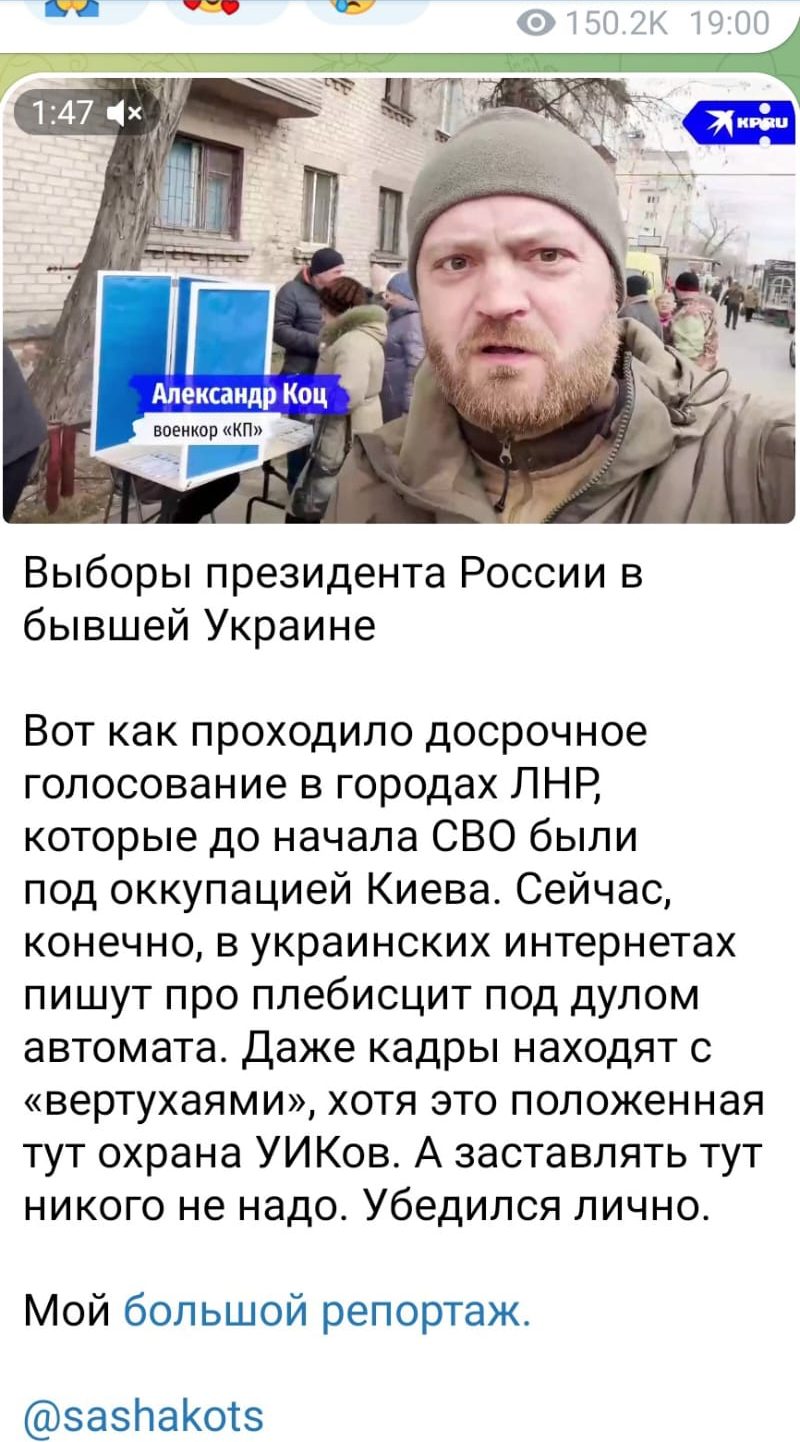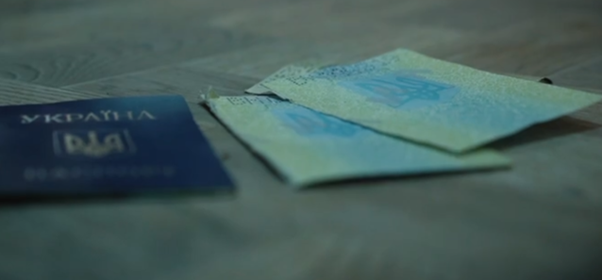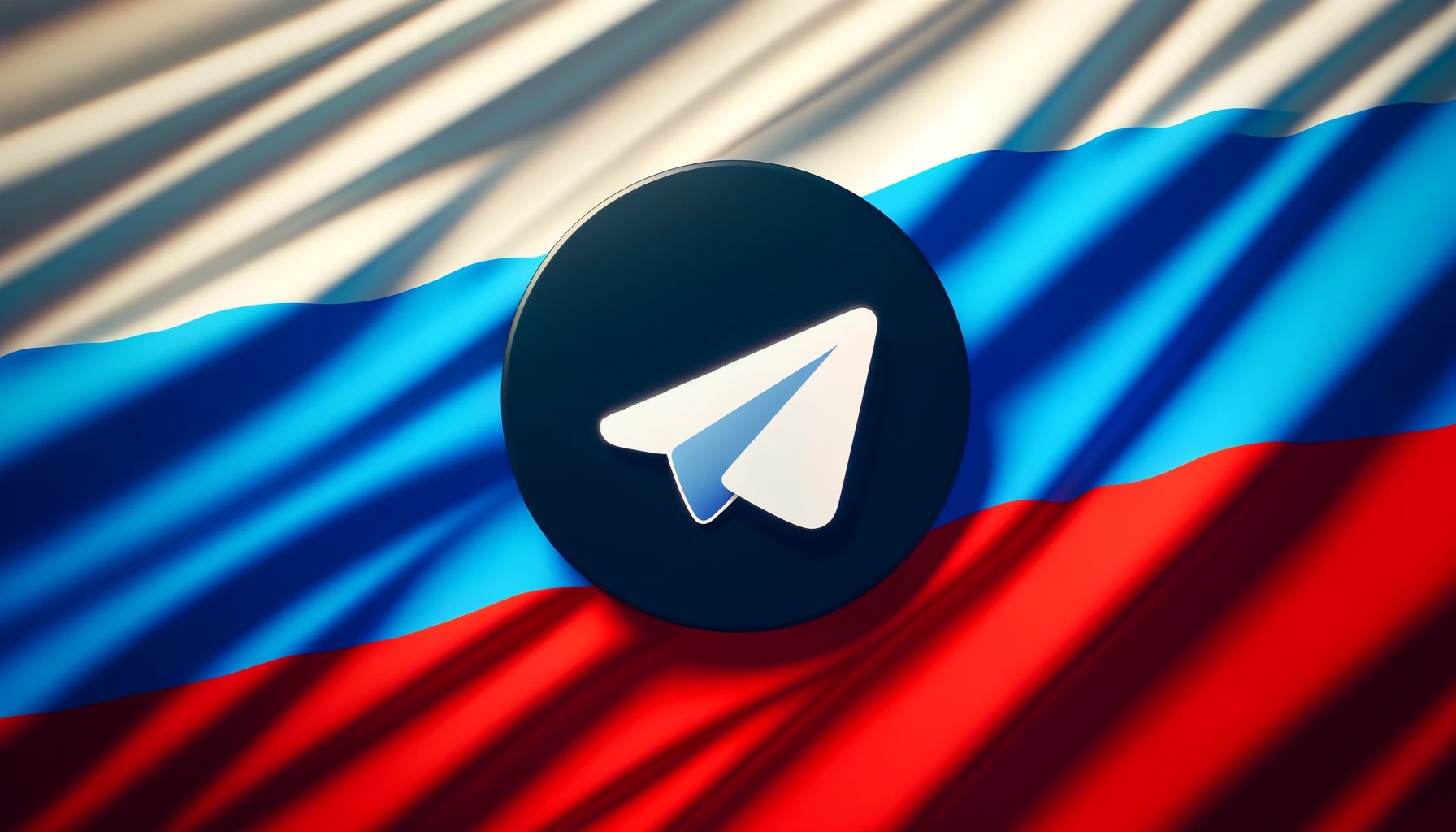Publications
INSS Insight No. 1849, April 16, 2024
The Russian presidential election that was held on March 15–17 provided Russian military bloggers with an opportunity to promote a pro-Putin and pro-war narrative. An analysis of posts from three leading Telegram channels that appeared in the four months preceding the election indicates their connection with promoting the legitimacy of the government and continuing the war in Ukraine. In the election campaign, the posts depicted Ukraine and the West as antidemocratic and as trying to sabotage Russian democracy. Putin, for his part, was described as a strong leader who is defending democracy from foreign intervention and is waging a just war to establish democracy in the territories that Russia has conquered from Ukraine.
The ongoing fighting in Ukraine played a central role in Russia’s presidential election, which was held on March 15–17, 2024. Without any significant competitors, Putin’s victory created the perception that Russian society supports the continuation of the war and sees it as fulfilling a national sentiment. The election results, with 87.28 percent of the vote for Putin, provided him with both governmental and military legitimacy, solidifying his leadership and increasing his power.
The war between Russia and Ukraine is also being waged in the digital battlefield, where military bloggers, including journalists, digital professionals, and content writers, maintain contact with the front lines and provide reports on Telegram, the social networking platform. These channels usually offer more comprehensive information than the official sources of the Russian Ministry of Defense and sometimes also feature criticism of senior Russian commanders. Nonetheless, all of these channels express support for the war and take a clear anti-Western stance. They have become especially popular during the war for distributing unique military information and for having direct access to Russian forces and on-the-ground combat. Telegram has also become the preferred social network in Russia in terms of traffic, surpassing the use of WhatsApp, according to a report by the Russian governmental news agency TASS published in January 2024, which has contributed to the popularity of these military bloggers. This growth of Telegram has been particularly noticeable since the start of the war when Facebook and Instagram were blocked in Russia.
The three channels reviewed are among the most popular channels for consuming war content in Russian society: Kotsnews, by Alexander Kots, a journalist and combat soldier who works at the newspaper Komsomolskaya Pravda; Rybar, by Mikhail Zvinchuk, a reserve combat soldier and journalist who worked with the Russian Ministry of Internal Affairs; and Colonelcassad, by Boris Rozhin, a blogger and propagandist of the regime. The number of followers on these channels ranges from 570,700 to 1.1 million.

Although the Russian public considers these channels trustworthy, their independence from the Russian establishment is questionable. The close connection between the establishment and the bloggers is evident from a semi-official two-hour meeting that Putin held at the Kremlin last June with leading military bloggers for the purpose of hearing their requests and complaints. This meeting is presented in its entirety on the Kremlin website. The bloggers’ alignment with the national media and the Russian establishment has also been confirmed by the Russian journalism prizes they have won, as well as by the Western sanctions imposed against them for their role in spreading Kremlin-sponsored propaganda. The connection to the government is also further apparent by the direct transfer of messages and news items from Putin’s official Telegram channel, and by the absence of a critical stance toward him, in contrast to other bloggers in Russia. Consequently, these channels should be viewed as propaganda channels that play a central role in shaping and determining public opinion in Russia regarding the Russia-Ukraine war.
In terms of the elections, three main messages were disseminated to the Russian public on these channels from December 2023 to March 2024. First, participation in the election is a civil duty that defends Russian democracy from the West and Ukraine, which are presented as undemocratic forces. Second, participating in the election is promoted as contributing to the consolidation of Russian rule in the occupied areas of Ukraine. Third, the election is used as means of strengthening the Kremlin’s message that there is no Ukrainian people, and that Ukraine is a historic part of Russia. Together, these messages contribute to the portrayal of Putin as a strong and victorious leader, and indirectly legitimize a series of steps he would take after the election, such as another major wave of conscription and unpopular economic measures, including raising taxes and nationalizing factories for the benefit of the war effort.
The claim that Russia is a democratic country defending itself against antidemocratic forces in Ukraine and the West appears frequently in the content on these Telegram channels. Sometimes the blame is placed on NATO, described as an agent of chaos attempting to spread false messages and incite public protests. For example, on December 10, Kotsnews published a story alleging that representatives of NATO forces were caught by the Russian central election committee while spreading fake news on social media. Kotsnews stated, “There is no doubt that the West will not miss the opportunity to influence the political situation in our country. It still believes that the moment Putin falls, Russia will immediately surrender and stop being a problem. Therefore, you must be prepared for external attempts to rattle the regime.” Rybar also made a similar claim, accusing the West of promoting narratives that highlight the difficulties faced by Russian citizens. According to Rybar, these narratives became increasingly common as the election date approached, with the aim of disrupting the democratic right of the country’s citizens to vote by organizing mass demonstrations to undermine the government and sabotage the democratic election process. Similar claims were also made about Ukrainian forces. On February 10, Colonelcassad posted about attempts to defame the Russian authorities in the occupied areas of Ukraine and prevent the new citizens of Russia from participating in the elections.
At the same time, military bloggers sought to portray Russia as a true democracy in contrast to Ukraine. Instead of democratic rule, the channels claimed that Ukraine is ruled by oligarchs who live glamorous lives while using citizens as cannon fodder on the battlefield for their selfish goal of control and power. “We have a whole series of candidates that suit every taste and color (except for the colors of the rainbow) . . . can you imagine such exoticism in Kiev? No? Me neither. But make no mistake, over there in Europe it’s the true democracy, and here it’s a swamp and a dictatorship” wrote Kots ironically in late January. This is how Russian propaganda exploits the constitutional and collective Ukrainian decision not to hold elections during the war, describing a contrarian picture on the Telegram channels in which Russia is a democratic country fighting for justice and freedom within its borders and its new territories.
Several election videos distributed on Telegram depict Ukrainian soldiers who allegedly realize their mistake on the battlefield, change sides, and participate in the Russian presidential election (see figure 1). This message is also conveyed in other posts featuring Ukrainians becoming Russian citizens specifically for the election. For example, the caption of a photo showing a family with new Russian passports published on Colonelcassad on February 23 read, “New citizens of Russia. Just last week they lived in occupied Avdiivka. Today they are our fellow citizens. And they can even participate in the election.” The desire of soldiers and civilians is presented as aligning with the government’s interest, while participating in the Russian presidential election signifies recognition of Russian legitimacy in the occupied territories.

Furthermore, the portrayal of local residents, including civilians and soldiers, seeking Russian passports and participating in the election reflects Putin’s stance on the unity of the Russian and Ukrainian peoples under a greater Russia, while denying a distinct Ukrainian history and identity. The Russian establishment has been promoting this narrative for several years, predating the invasion of Ukraine, with these depictions effectively negating the reasons for which Ukraine is fighting for its independence.
The military blogger channels have gained popularity among the Russian public as a source of news and information about events on the front lines of the war. The recent presidential election highlighted their significance in garnering support for the war and establishing its legitimacy, as well as reinforcing Putin’s rule, presented as a strong leader who defends Russia’s values and fights against the forces of the West and Ukraine. There is no doubt about their significant contribution to shaping Russian public opinion.



